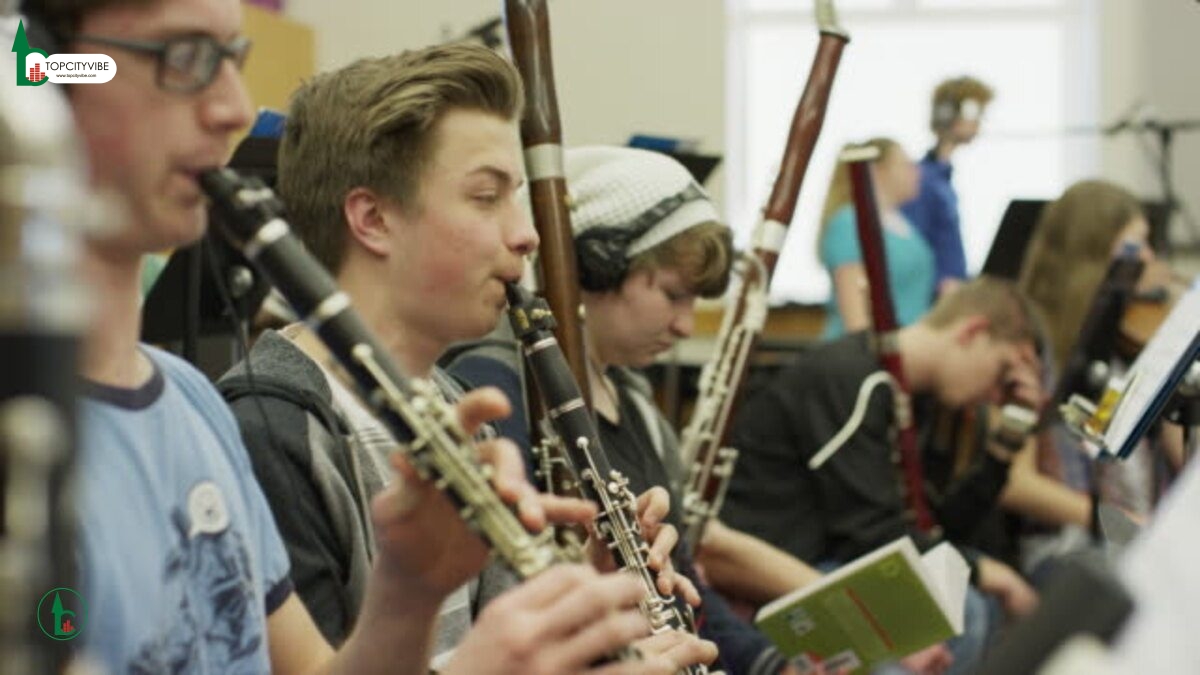Hot Music
Guides on How to Start a Band or Learn an Instrument
Published


Guides on How to Start a Band or Learn an Instrument
Starting a band or learning an instrument can be a transformative journey, bringing you closer to the heart of music. Whether you’re fueled by a desire to create, perform, or simply appreciate the art form, there’s a path awaiting you. Let’s delve into the details of these two exciting endeavors.
Starting a Band:
1. Vision and Bandmates:
Envision the kind of music you want to create and find like-minded individuals who share your passion and vision. A band thrives on the synergy between its members.
2. Genre and Identity:
Choose a musical genre that resonates with your collective spirit. This decision shapes your band’s identity and helps you attract the right audience.
3. Practice Makes Perfect:
Dedicate regular time to rehearsing together. This not only sharpens your musical skills but also strengthens your connection as a band.
4. Songwriting and Covers:
Explore writing your own songs or adding your unique twist to covers. This is where your creativity shines through, shaping your band’s signature sound.
5. Online Presence:
Establish a strong online presence through social media and platforms like SoundCloud or YouTube. Sharing your music and behind-the-scenes moments engages potential fans.
6. Live Performances:
Book gigs at local venues, events, or even open mic nights. Performing live helps you refine your stage presence and connect with your audience.
7. Recording Demos:
Record demos of your original songs. These serve as your musical portfolio, showcasing your potential to fans and industry professionals.
8. Networking:
Connect with other local bands, music producers, and event organizers. Collaborations and shared experiences can open new doors for your band’s growth.
9. Feedback and Adaptation:
Be open to feedback and willing to adapt. Evolution is natural in the music world, and your band’s style may evolve over time.
10. Passion and Perseverance:
Keep the passion alive and persevere through challenges. Building a successful band takes time, dedication, and unwavering determination.
Learning an Instrument:
1. Instrument Selection:
Choose an instrument that resonates with you. Consider your musical preferences and the role you want to play in creating music.
2. Gathering Equipment:
Acquire the instrument, accessories, and learning materials you need. Quality gear enhances your playing experience.
3. Educational Resources:
Whether it’s private lessons, online tutorials, or music schools, seek out resources to learn proper technique and theory.
4. Practice Rituals:
Establish a practice routine. Consistency is key to improving your skills and developing muscle memory.
5. Music Theory:
Understand the basics of music theory. This knowledge empowers you to experiment, compose, and improvise effectively.
6. Starting with Basics:
Begin with simple songs and exercises to build your foundation. Gradually progress to more complex pieces as your skills advance.
7. Online Learning:
Utilize online platforms, videos, and interactive apps that offer a wide range of lessons and exercises.
8. Jamming with Others:
Collaborate with fellow musicians, even if you’re still a beginner. Playing with others improves your timing, communication, and adaptability.
9. Recording Progress:
Record yourself during practice sessions. This not only tracks your growth but also helps you identify areas for improvement.
10. Patience and Persistence:
Learning an instrument is a journey that requires patience and persistence. Celebrate small victories and embrace the learning curve.
Progression and Performance
As you advance in your musical journey, strive for growth and performance opportunities:
1. Repertoire Development:
Start with simple songs and gradually challenge yourself with more complex pieces. Building a diverse repertoire keeps your learning engaging.
2. Collaboration:
Play with other musicians to improve your timing, rhythm, and ability to adapt to different styles.
3. Recording and Self-Assessment:
Record your practice sessions and performances to track your progress. Self-assessment helps you identify areas for improvement.
Conclusion
Starting a band and learning a musical instrument are intertwined journeys that lead to personal growth, creative fulfillment, and the joy of shared experiences. The process involves dedication, patience, and a commitment to honing your skills. Whether you’re harmonizing with bandmates on stage or playing a soulful melody on your chosen instrument, remember that the journey itself is as valuable as the destination. Embrace the challenges, celebrate the victories, and let the language of music guide you on a truly harmonious path
In both cases, remember that growth takes time. Embrace the learning process, nurture your creativity, and savor the joy of making music, whether you’re performing on stage or practicing alone in your room.
Guides on How to Start a Band or Learn an Instrument
I'm Youngz, The Mastermind Behind TopCityVibes, A Proficient And Innovative Professional In Web Design And Graphics. With A Relentless Commitment To Delivering Non-stop Updates, Ensures You Stay Informed And Engaged. Don't Miss The Chance To Connect With Creative Force Via The Handle Below.

